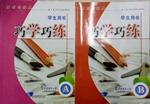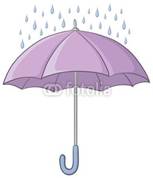题目内容
阅读短文,并按要求完成题。
“Hello” is one of the first words we learn as babies, yet it’s one of the last ones we think to use as adults. That’s unlucky, because saying hello is more than just saying hello. How might the world change—how might we change—if we mastered this word? ①I spent one month saying hello to every person I met. Here’s what I’ve learned.
* It can make the students more active. In a study on this subject, Allan Smith, an assistant professor, had middle school teachers greet their students individually (个别的) each morning. And the whole day, the students behaved actively because of this exchange of greetings. School went from impersonal to personal and that caused more class participation (合作) and better grades.
* Environments influence friendliness. One study found that people in the city were less likely to shake hands with a stranger than those in the countryside. ②And researchers think pleasant environments can encourage more smiles and hellos. For example, people in vacation spots were much more friendly than those hurrying to work downtown.
* It improves people’s health. It’s impossible to say hello without smiling. And smiling has been shown to lower blood pressure, reduce stress and bring happiness. Obviously, a smile creates a similar effect in the recipient (接受者).
So maybe we can make the world a better place by saying hello. After a month of doing it, I feel lighter and more connected and I have a better sense of happiness.
76题为;77题为;78题为;79题为;80题为
小题1:判断正误(“T”表示正确,“F”表示错误)
The students behaved actively after the middle school teachers greeted them individually. [ ]
小题2:简略回答问题
What can smiling do to improve people’s health?
___________________________________________________________________________
小题3:写出文中画线句子①的同义句,每空限填一词
It ____________ me one month to ____________ hello to every person I met.
小题4:找出全文的主题句
___________________________________________________________________________
小题5:把文中画线句子②译成汉语。
___________________________________________________________________________
“Hello” is one of the first words we learn as babies, yet it’s one of the last ones we think to use as adults. That’s unlucky, because saying hello is more than just saying hello. How might the world change—how might we change—if we mastered this word? ①I spent one month saying hello to every person I met. Here’s what I’ve learned.
* It can make the students more active. In a study on this subject, Allan Smith, an assistant professor, had middle school teachers greet their students individually (个别的) each morning. And the whole day, the students behaved actively because of this exchange of greetings. School went from impersonal to personal and that caused more class participation (合作) and better grades.
* Environments influence friendliness. One study found that people in the city were less likely to shake hands with a stranger than those in the countryside. ②And researchers think pleasant environments can encourage more smiles and hellos. For example, people in vacation spots were much more friendly than those hurrying to work downtown.
* It improves people’s health. It’s impossible to say hello without smiling. And smiling has been shown to lower blood pressure, reduce stress and bring happiness. Obviously, a smile creates a similar effect in the recipient (接受者).
So maybe we can make the world a better place by saying hello. After a month of doing it, I feel lighter and more connected and I have a better sense of happiness.
76题为;77题为;78题为;79题为;80题为
小题1:判断正误(“T”表示正确,“F”表示错误)
The students behaved actively after the middle school teachers greeted them individually. [ ]
小题2:简略回答问题
What can smiling do to improve people’s health?
___________________________________________________________________________
小题3:写出文中画线句子①的同义句,每空限填一词
It ____________ me one month to ____________ hello to every person I met.
小题4:找出全文的主题句
___________________________________________________________________________
小题5:把文中画线句子②译成汉语。
___________________________________________________________________________
小题1:T
小题2:Smiling can lower blood pressure, reduce stress and bring happiness.
小题3:took, say
小题4:(So)maybe we can make the world a better place by saying hello.
小题5:研究者们认为愉悦的环境能够激发出更多的微笑和问候。
试题分析:这篇短文中作者告诉我们,主动的问候别人,对别人微笑,这不仅对自己的健康有好处,而且你会发现这个世界会变得更好,让人有幸福感。因此我们要好好使用hello这个词,主动的去问候别人。
小题1:根据短文第二段中Allan Smith, an assistant professor, had middle school teachers greet their students individually (个别的) each morning. And the whole day, the students behaved actively可知,当Allan,一个助教,让中学的老师每天早上一个个的问候他的学生的时候,整整一天,这些学生们都表现很积极。故这个句子是符合文意的。
小题2:根据短文第四段中And smiling has been shown to lower blood pressure, reduce stress and bring happiness.可知,微笑可以降低血压、减少压力、带来幸福。这就是微笑对人的身体健康的作用。
小题3:原句意为:我花费了一个月的时间,对我遇到的每一个人说你好。这个句子中所使用的句型是spend + 一段时间+ in doing sth.,表示花费时间做某事。变成同义句时,我们可以用take 表示花费的句型,即It takes sb.+一段时间+to do sth.。故这里应该填took, say。
小题4:根据文意可知,这篇短文中作者告诉我们,主动的问候别人,对别人微笑,你会发现这个世界会变得更好,让人有幸福感。整篇短文的主题句出现在最后一段,maybe we can make the world a better place by saying hello,通过说hello,我们可以让这个世界成为一个更好的地方。
小题5:pleasant 是一个形容词,意思是令人愉悦的;encourage 鼓励,激励,激发。因此这个句子的意思是:研究人员认为令人愉悦的环境能够激发更多的微笑和问候。

练习册系列答案
 巧学巧练系列答案
巧学巧练系列答案
相关题目
